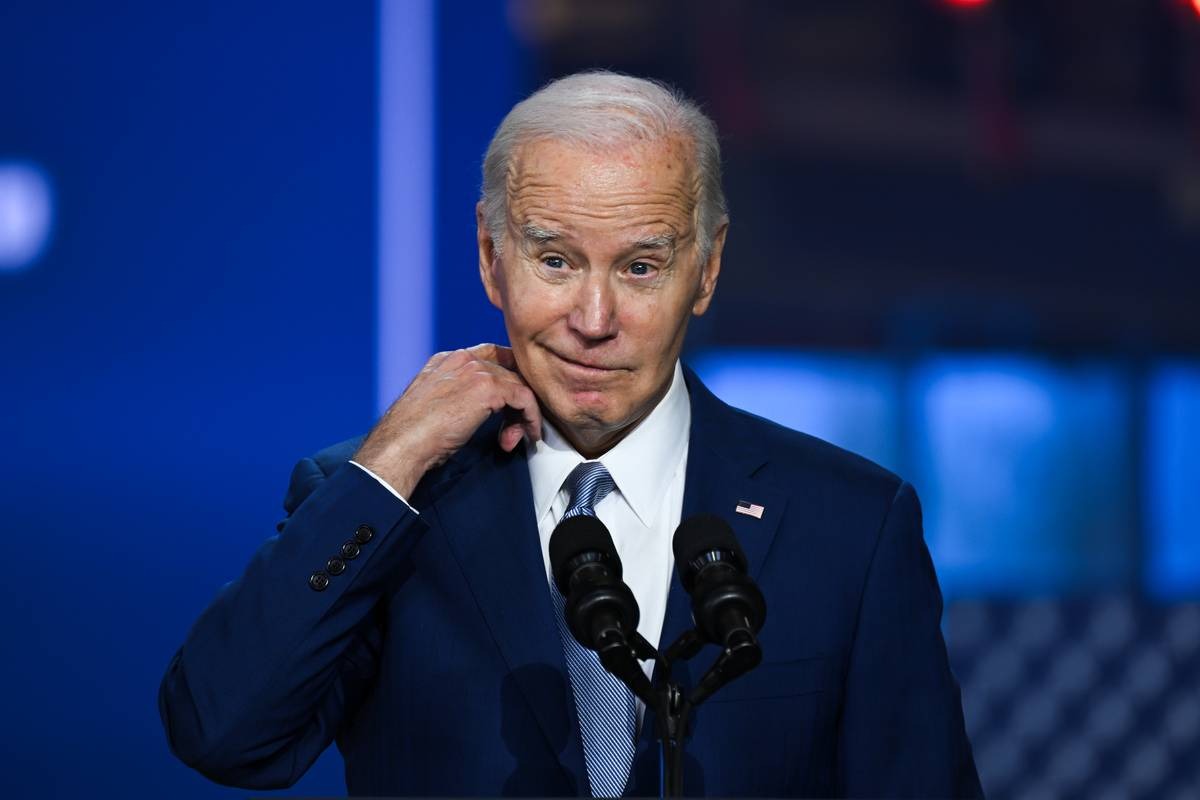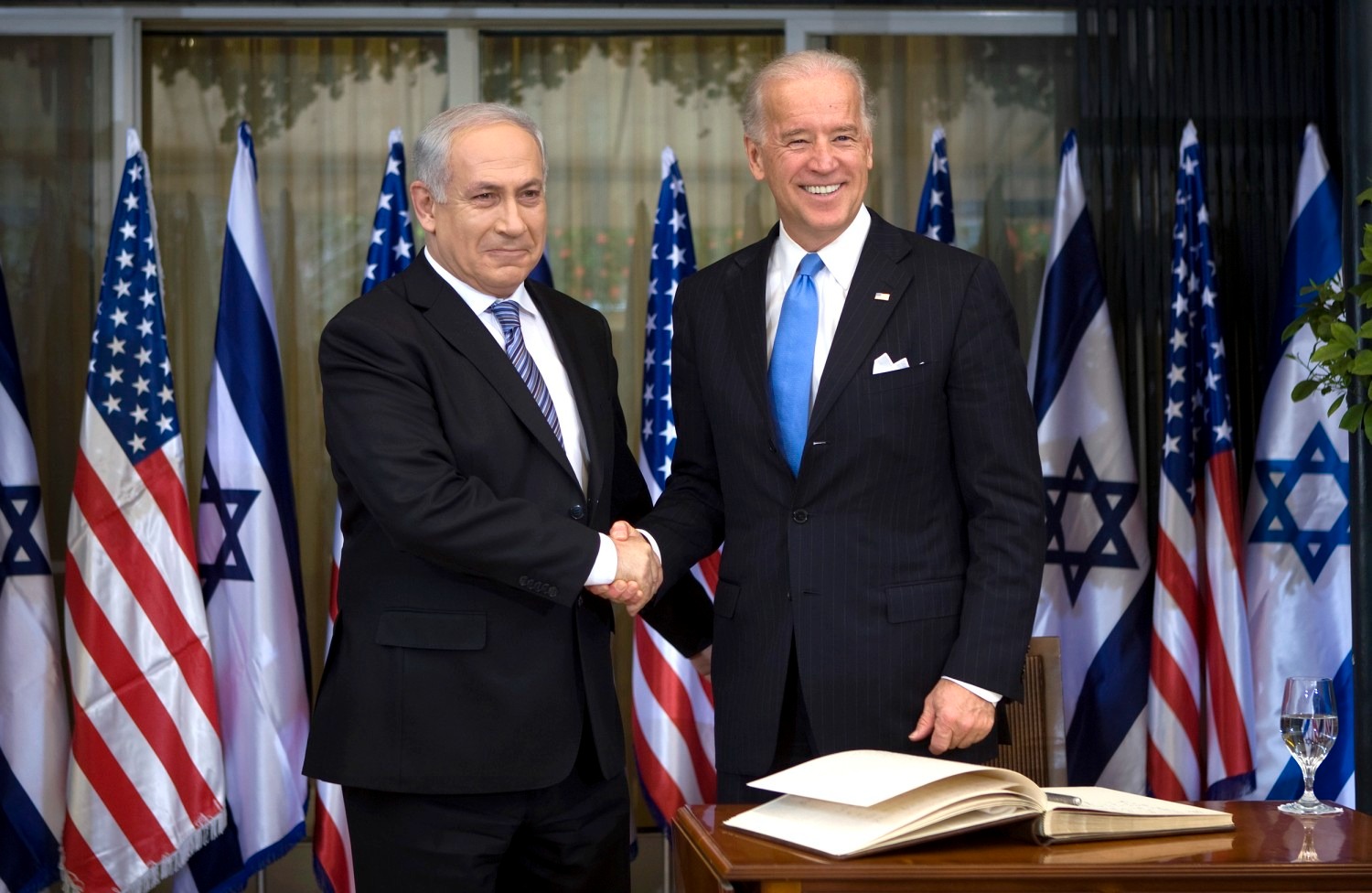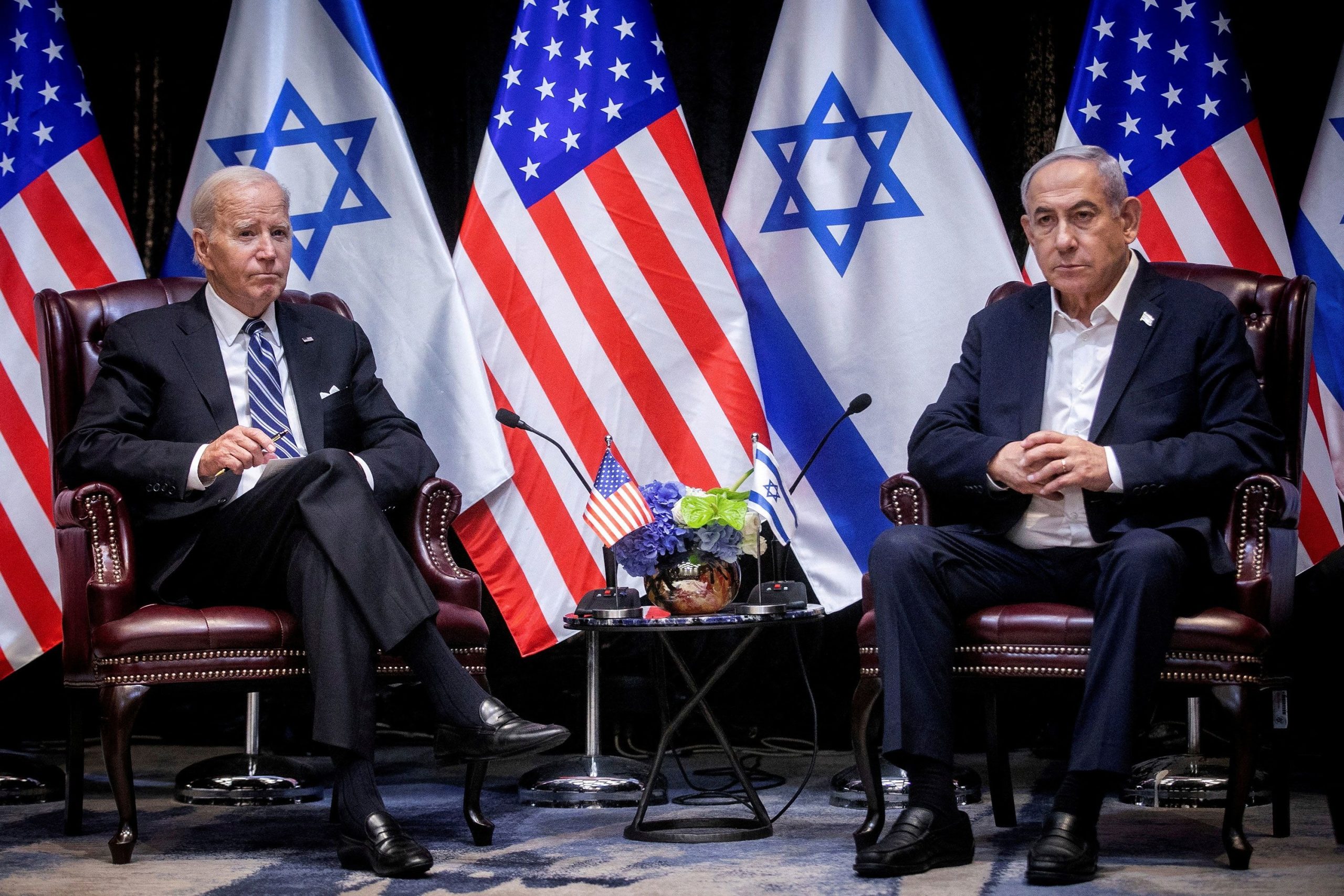In 2001, Benjamin Netanyahu confidently spoke about his ability to navigate U.S. pressure in favor of Israel. His approach seems consistent over the years, notably during the recent Gaza conflict.
Despite criticisms from the Biden administration about civilian casualties, Israel continued receiving U.S. support. However, the dynamics shifted when the U.S. chose not to veto a UN resolution calling for a ceasefire, hinting at strained relations between the two countries.
Netanyahu’s reaction to the U.S. stance was to cancel a scheduled Washington visit by his officials and publicly criticize the U.S. for complicating ceasefire talks with Hamas. This move reflects Netanyahu’s reliance on his coalition with ultra-nationalist parties and indicates a potential diplomatic crisis.

Biden losing patience with Netanyahu (Credits: Middle East Monitor)
The relationship between Netanyahu and President Joe Biden, who has demonstrated a solid commitment to Israel, now faces challenges. Discussions that were supposed to happen between Netanyahu’s representatives and the U.S. would have focused on critical issues like a ground invasion of Rafah in Gaza, humanitarian aid, and the broader future of Israel’s governance, including the possibility of a two-state solution.
The situation is complicated by Netanyahu’s resistance to certain U.S. positions, like opposing a ground invasion of Rafah, which Biden marked as a red line. The Biden administration likely sought more flexibility from Israel in allowing humanitarian aid into Gaza and in negotiating a ceasefire that includes the release of hostages.

Biden speaks with Netanyahu (Credits: NBC News)
As tensions rise, Netanyahu faces domestic and international scrutiny, balancing the demands of his far-right allies with the expectations of the U.S. and the global community.
The ongoing conflict and Netanyahu’s diplomatic maneuvers underscore the complex relationship between the U.S. and Israel, with Biden’s administration signaling a possible reevaluation of their stance to align with broader humanitarian and political goals.























